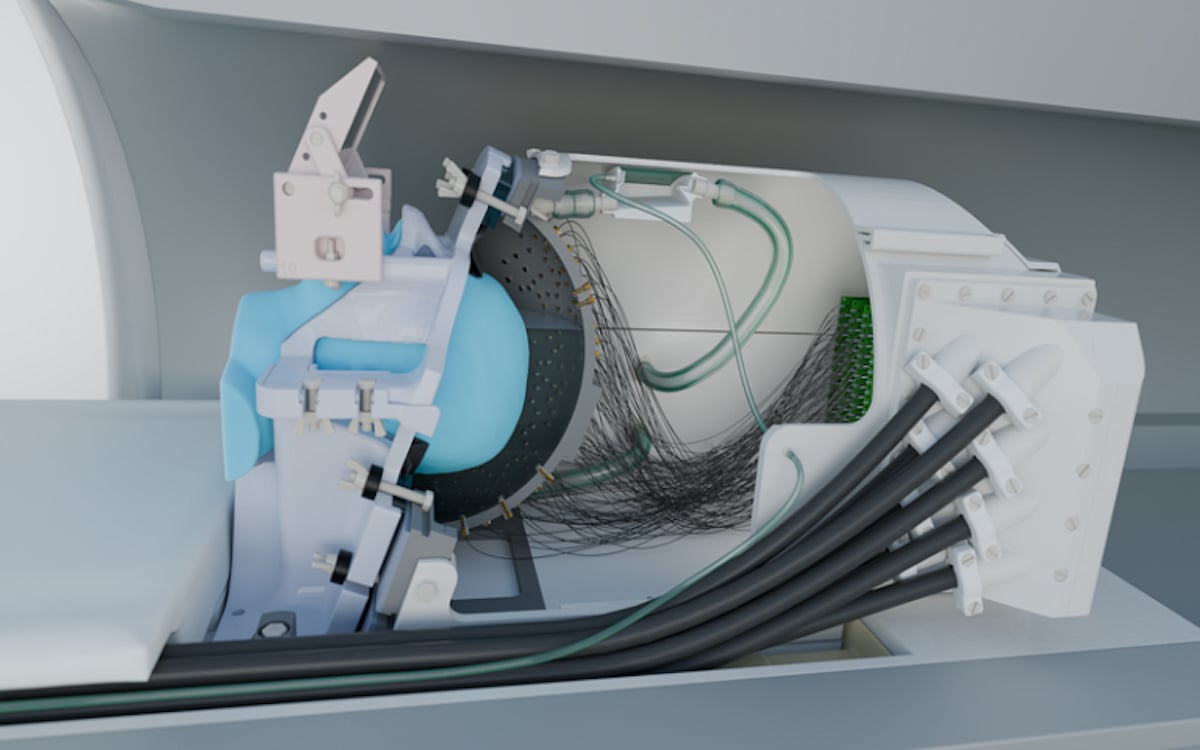Download our NEW Mobile App!
Get Healthy!

- Posted September 10, 2025
Ultrasound Helmet Provides Surgery-Free Brain Stimulation
Deep brain stimulation has shown promise in treating conditions ranging from epilepsy and Parkinson’s disease to cluster headaches, depression and schizophrenia.
Unfortunately, this approach requires brain surgery, with doctors drilling into the patient's skull to implant tiny devices that deliver mild electrical pulses.
But a new ultrasound helmet might be able to precisely stimulate areas deep in the brain without the need for surgery, according to findings just published recently in the journal Nature Communications.
The helmet can target areas about 1,000 times smaller than conventional ultrasound devices and 30 times smaller than previous ultrasound devices built for deep brain stimulation (DBS), researchers said.
“Clinically, this new technology could transform treatment of neurological and psychiatric disorders like Parkinson's disease, depression and essential tremor, offering unprecedented precision in targeting specific brain circuits that play key roles in these conditions,” senior researcher Bradley Treeby, an honorary professor of biomedical ultrasound at the University College London, said in a news release.
Transcranial ultrasound stimulation (TUS) can alter the activity of neurons through the use of gentle high-intensity sound waves, researchers said in background notes.
However, up to now, these systems have struggled to reach deeper areas of the brain with the precision needed for proper treatment, researchers said.
The experimental helmet contains 256 individually controllable ultrasound elements that can send focused beams of ultrasound to specific parts of the brain. These beams can enhance or diminishing neuron activity.
The patient lies on their back and slides their head into the helmet, researchers said in their paper. A soft plastic face mask helps keep their head still during the ultrasound treatment.
Researchers tested the helmet on seven people by targeting a part of the thalamus, a small structure in the brain’s center that relays sensory and motor information.
The part targeted is called the lateral geniculate nucleus, which helps process visual information.
Brain scans showed that the ultrasound helmet could significantly increase or decrease activity in the participants’ visual cortex, and that these changes can last for at least 40 minutes following treatment.
The participants didn’t consciously perceive any changes in what they were seeing, but the brain scans revealed significant changes in neural activity, researchers said.
“The ability to precisely modulate deep brain structures without surgery represents a paradigm shift in neuroscience, offering a safe, reversible and repeatable method for both understanding brain function and developing targeted therapies,” Treeby said.
Based on the clinical potential of the technology, several members of the research team recently founded NeuroHarmonics, a University College London spinout company that’s developing a portable, wearable version of the system.
"This novel brain stimulation device represents a breakthrough in our ability to precisely target deep brain structures that were previously impossible to reach non-invasively," lead researcher Dr. Ioana Grigoras, a postdoctoral research associate at the University of Oxford, said in a news release.
“We are particularly excited about its potential clinical applications for neurological disorders like Parkinson's disease, where deep brain regions are especially affected,” she added.
More information
The Cleveland Clinic has more on deep brain stimulation.
SOURCES: University College London, news release, Sept. 5, 2025; Nature Communications, Sept. 5, 2025






